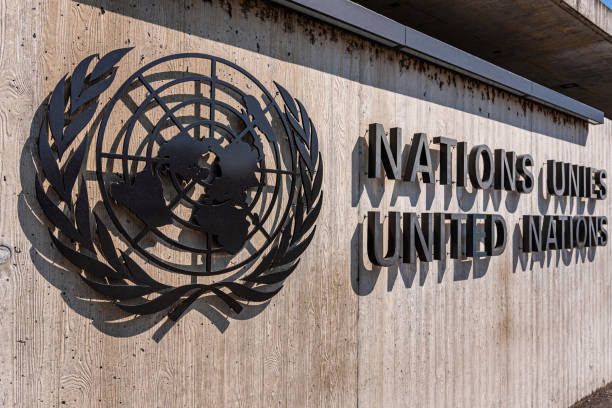WORLD
Global trade to fail after high returns of $28.5trn – UN

Global trade reached a record high in 2021, but it is expected to slow in 2022 for many reasons including continuing delays in global supply chains, UN economists said on Thursday.
Announcing that worldwide commerce amounted to around 28.5 trillion dollars in 2021, the UN Conference on Trade and Development (UNCTAD) explained that this represented an increase of almost 13 per cent compared to the pre-pandemic level of 2019.
“The positive trend for international trade in 2021 was largely the result of increases in commodity prices, subsiding pandemic restrictions and a strong recovery in demand due to economic stimulus packages,” UNCTAD said, in its Global Trade Update 2022.
Significantly, the UN body pointed to data showing that trade in services finally returned to its pre-pandemic levels in the fourth quarter (Q4) of 2021, while trade in goods remained strong, increasing by almost $200 billion, to about 5.8 trillion dollars, a new record.
UNCTAD – which offers technical advice to developing countries to access the globalised economy – also noted that poorer nations’ exports outpaced their richer counterparts in the last quarter of 2021, compared with Q4 2020 (by 30 per cent versus 15 per cent).
South-South trade growth was also above the worldwide average in the last quarter of 2021, with an increase of about 32 per cent on Q4 2020, and with an increase of about 38 per cent when excluding east Asian economies.
Regionally, trade growth in the last quarter of 2021 remained very strong across all geographic regions, UNCTAD said, although it was lower in Europe, North America and east Asia. Commodity-exporting regions fared better, as commodity prices increased.
Turning to 2022 outlook and the reasons why it is set to see less growth than in 2021, the UN body said that 2021 economic drivers were likely to “abate”.
This means that “trade growth will continue to slow during Q1 2022” and then “normalize during 2022”, UNCTAD said, before pointing to “persistent inflation” in the U.S. and “concerns” over China’s real estate sector.
Global supply chains – one of the key elements of the worldwide trade puzzle – will also continue to face negative pressures created by the COVID-19 pandemic, UNCTAD continued.
This is inspite of efforts by shipping companies to improve reliability and risk management, amid semiconductor shortages and rising energy prices that have contributed to supply shortages and “spiralling” maritime transport costs.
Global trade patterns could also be affected by a new trade agreement among east Asian and Pacific region economies – the Regional Comprehensive Economic Partnership (RCEP).
UNCTAD said It entered into force on Jan. 1, 2022 and it could significantly increase trade between members, “diverting trade from non-member countries.”
The UN body added that other regional commerce initiatives such as the African Continental Free Trade Area could produce a similar result.




 Davido's Net Worth & Lifestyle
Davido's Net Worth & Lifestyle 
